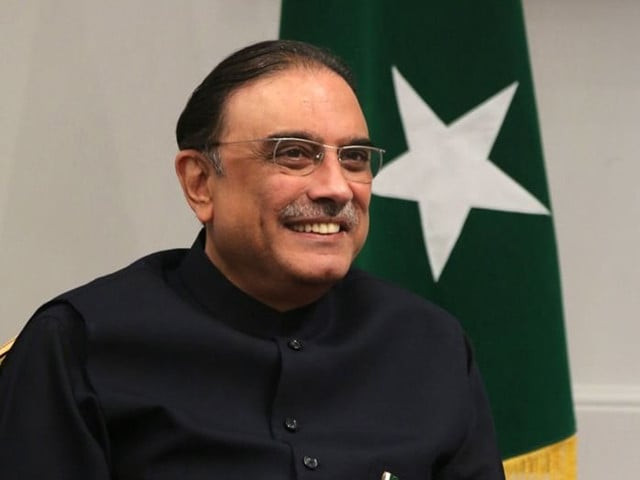Asif Ali Zardari - a political school!
He will be remembered among those students of politics will continue to seek guidance from

The 69th birthday of President Asif Ali Zardari is being celebrated today. This day is the best opportunity to pay tribute to his historic achievements, recognise his services for the stability of Pakistan, his steps for democracy in the country and well-being of people.
One of his great achievements is that, after the martyrdom of Benazir Bhutto, he worked tirelessly for the survival and continuity of the Pakistan People's Party in very difficult circumstances. After the extra judicial killing of Shaheed Zulfiqar Ali Bhutto, the motive of terrorists behind killing Benazir Bhutto was to destroy the Pakistan Peoples Party (PPP). The party transformed the democratic struggle of the people into a powerful political movement in the 1960s and continues to lead this democratic struggle.
The party represents not only the unity of the people of Pakistan but also an institution of national unity. Preserving and strengthening it is undoubtedly a historic achievement for democratic and national stability.
Another major achievement of Asif Zardari is the restoration of the 1973 Constitution through the 18th Constitutional Amendment, which ensures the preservation of the Federation of Pakistan. This guarantee is provided by the federal parliamentary democratic system established in the constitution.
Asif Ali Zardari transferred his presidential powers to Parliament under the 18th Constitutional Amendment for the sake of the country and democracy. Now, only Parliament has the authority to form, change, and dissolve governments. The 18th Constitutional Amendment has also significantly reduced opportunities for non-political forces to seize democratic power or interfere in the political process.
Another achievement of the president is that he made crucial political decisions alongside the 18th Constitutional Amendment to counter threats to Pakistan's security.
He gave an identity to this federal unit by renaming the North West Frontier Province (NWFP) as Khyber Pakhtunkhwa. This recognition ended the perception that the province and its adjacent tribal areas were merely a 'buffer zone' in the geopolitical game. He also identified these areas as distinct units through the Gilgit-Baltistan Reforms in 2009, which helped mitigate risks for Pakistan.
Additionally, he not only apologised for past violations against the people of Balochistan but also introduced the 'Balochistan Rights Package' to integrate them into the mainstream political framework of Pakistan.
Another great achievement of Asif Ali Zardari is his promotion of the politics of reconciliation in the country. Reconciliation is a fundamental philosophy of the Pakistan People's Party.
Shaheed Zulfiqar Ali Bhutto himself drafted the party's 'fundamental document' at its establishment in 1967, with its first chapter dedicated to reconciliation. From 1970 to 2024, every election manifesto of the People's Party has included a chapter on reconciliation. The philosophy of reconciliation advocates that instead of engaging in conflict, political forces should agree on a political and democratic program and work together to advance democracy and people's rights.
The way Asif Ali Zardari implemented this philosophy of reconciliation is unparalleled in modern history. Through his conciliatory politics, he achieved significant milestones for democracy and people's rights, including the unanimous approval of the 18th Constitutional Amendment.
PPP Chairman Bilawal Bhutto Zardari is continuing this tradition of reconciliation politics, opposing the traditional politics of conflict and bitterness.
In the political history of Pakistan, the name of Asif Ali Zardari will remain prominent among those great politicians who endured the hardships of long imprisonment. He was imprisoned for 11 years, facing numerous false political cases and following the legal path to prove his innocence.
He respected all state institutions, including the judiciary of Pakistan, and never claimed that, as the leader of a major political party, he was above the law. He never incited his party workers to attack institutions. Like Shaheed Bhutto, Shaheed Benazir Bhutto, and thousands of other workers and leaders of the PPP, he accepted court decisions.
He continued the party's program of providing employment, housing, and other basic needs, redirecting financial resources to improve living standards and implementing plans to enhance the quality of life for the people.
Under his leadership, the PPP government was established in Balochistan for the second time. Asif Ali Zardari will be remembered among those leaders whose political traditions will endure and from whom students of politics will continue to seek guidance.



















COMMENTS
Comments are moderated and generally will be posted if they are on-topic and not abusive.
For more information, please see our Comments FAQ